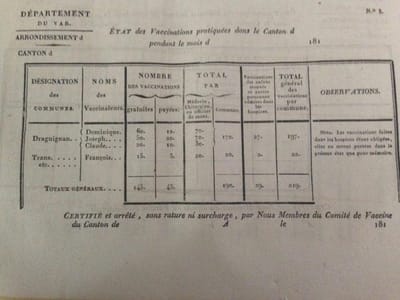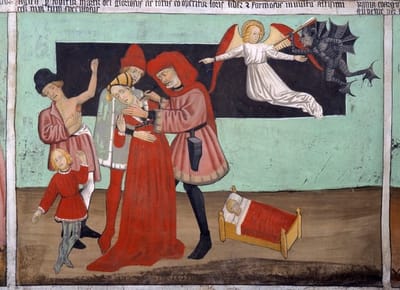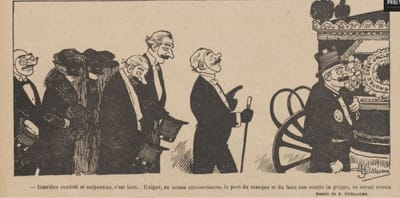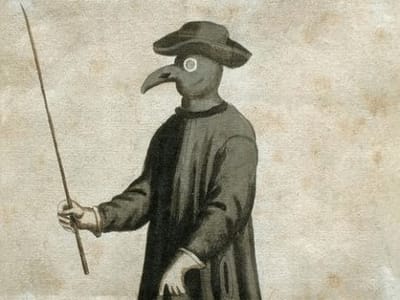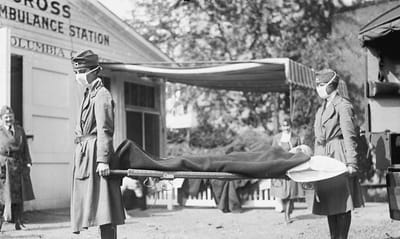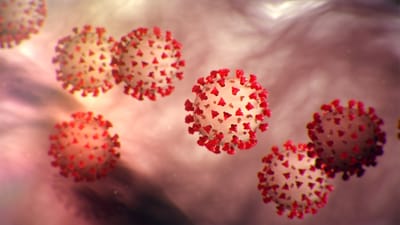CORONAVIRUS
In Antivax, the historian of science Laurent-Henri Vignaud plunges us into the eventful history of vaccination and dissects the springs of virulent antivaccinism for three centuries.
Read MoreUnder the reign of Louis XVIII, the prefects sent government orders to all mayors of France by decrees listed in book form, considering that loose sheets were easily lost. Thus, the prefect of Var, Mr. Siméon, sends the following circulars
Read MoreThe current epidemic of covid-19 leads us to look at the history of major epidemics and in particular of the plague: we regularly find reference to the "pestilence of the air" considered as a vector of contagion. However, if history has especially retained this notion willingly derided, other hypotheses were raised from the fourteenth century, not only by Pietro da Tossignano in his work dated 1399, but also by Boccace in his Decameron published between 1349. and 1353.
Read MoreCovid-19 disease can sometimes manifest itself in a neurological form. This is the observation made by medical teams several weeks after the first clinical descriptions of the SARS-CoV-2 coronavirus infection. As the Covid-19 epidemic progresses, clinicians, radiologists and neurologists are warning about these little-known clinical forms.
Read MoreAt the beginning of 1919, when the virus spread internationally, the prevention mask - like quinine or alcohol toddler - appeared as a first-hand prophylactic method. The press relayed this sudden eagerness to isolate faces.
Read MoreIt is the scourge par excellence, one that can mow half of a population. Beyond the traumatic cycles of European history, started in 541 and 1347, the word plague encompasses all epidemics. It tells of the fragility of our humanity.
Read MoreIn 2017, The Great Slayer, an account of the Spanish flu pandemic that occurred a century earlier, British essayist Laura Spinney looks back at how it unfolded and its resonances with the great fear surrounding the coronavirus.
Read MoreHEC Paris Conference
Read More
